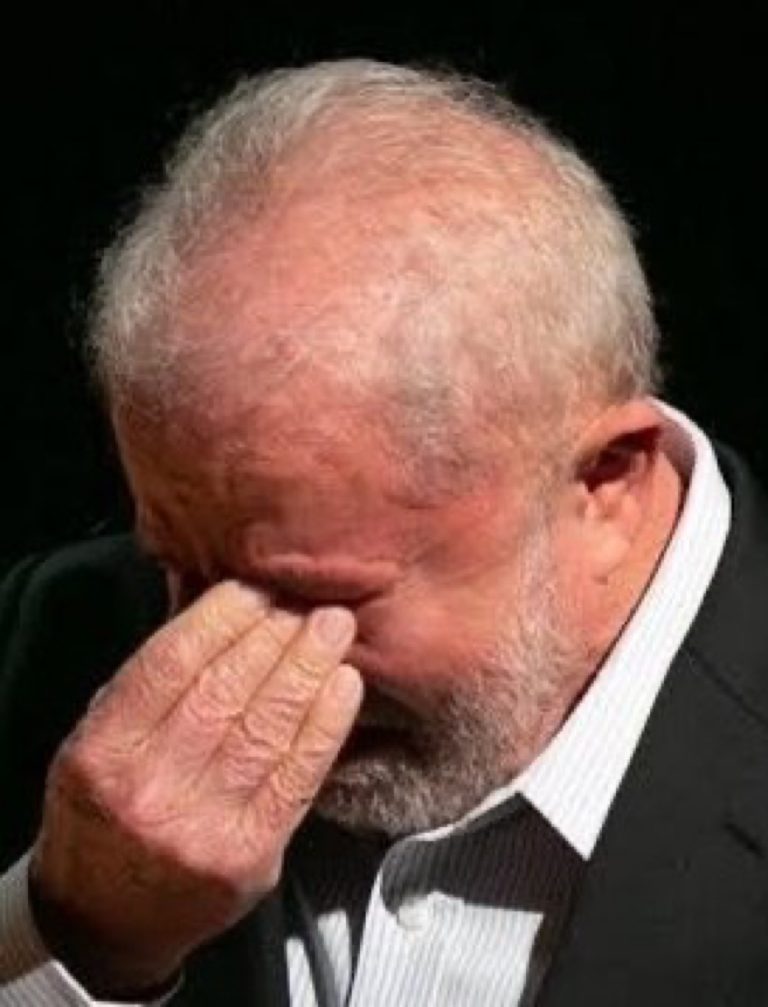Brazil on the Brink: A Warning of Economic Collapse and Foreign Domination
By Hotspotorlando News
As the clock strikes 03:54 AM EDT on Thursday, August 21, 2025, Brazil stands at a perilous crossroads, teetering on the edge of an economic abyss that threatens to mirror the catastrophic decline of Venezuela. In the quiet hours of this early morning, the weight of the nation’s predicament hangs heavy, illuminated only by the flickering hope of decisive action that has yet to materialize. Under the stewardship of President Luiz Inácio Lula da Silva, a leader with a troubling history of populist missteps and Marxist leanings, Brazil faces mounting debt, political instability, and the looming specter of foreign domination—chief among them from China and the United States. This conservative analysis argues that Lula’s administration has squandered Brazil’s potential, leaving it vulnerable to external pressures, particularly the ongoing Section 301 investigation by the U.S., which could trigger severe economic retaliation. The situation is dire, and without immediate, decisive action from a divided Congress, Brazil risks decades of hardship.
The numbers paint a grim picture. Brazil’s external debt has ballooned to $746.6 billion in the first quarter of 2025, a staggering burden that includes an estimated $40-50 billion owed to China and $60-70 billion to U.S. creditors. This debt, driven by Lula’s reliance on Chinese loans and currency swaps, has ensnared Brazil in a web of dependency, reminiscent of Venezuela’s oil-fueled collapse. Inflation hovers at 4.5%, while the Brazilian real has depreciated 5% against the dollar this year, eroding purchasing power and signaling a loss of confidence in the economy. Unemployment lingers at 6.8%, and industrial capacity has dropped 5% due to a flood of cheap Chinese imports, a trend that threatens to hollow out Brazil’s manufacturing base. Should the U.S., under a resurgent Donald Trump, escalate the Section 301 investigation to its “fifth march”—imposing 25% tariffs—exports could plummet by $20-30 billion annually, potentially slashing GDP by 2-3% in 2026. This is not mere speculation; it is a forecast rooted in the harsh lessons of past trade wars.
Lula’s leadership exacerbates these woes. His recent tax decree, overturned by Congress, reflects a reckless fiscal approach that prioritizes short-term political gains over long-term stability. The arrest of former President Jair Bolsonaro on August 4, 2025, and U.S. sanctions on Judge Alexandre de Moraes have deepened political fractures, turning Brazil into a battleground of ideological vendettas rather than a nation focused on economic recovery. Critics, including conservative voices, point to Lula’s past involvement in the Mensalão scandal as evidence of a pattern of corruption and mismanagement, a charge that undermines his credibility as Brazil navigates this crisis. His administration’s flirtation with China—evidenced by a 35% surge in imports and $3.4 billion in energy contracts—risks turning Brazil into a vassal state, much like Venezuela under Nicolás Maduro’s grip.
The danger is not hypothetical. Venezuela’s descent into hyperinflation (over 1 million% at its peak) and a 60% GDP collapse offers a chilling blueprint. Brazil, with its $2 trillion economy, is not yet at that point, but the parallels are alarming: over-reliance on commodities (40% of exports to China), a bloated public sector (92% of spending mandatory), and a Congress too fragmented to act decisively. The recent rejection of Lula’s tax proposal shows some resistance, but with the Workers’ Party holding only 52 of 513 lower house seats, legislative gridlock prevails. This inaction is a betrayal of the Brazilian people, who deserve a government that prioritizes sovereignty over socialist experiments.
The U.S. debt exposure—$60-70 billion—underscores a critical lesson Brazil must heed. Owing such a sum without severe consequences thus far is a privilege, not a license for recklessness. The Section 301 investigation, now at its “fourth march,” is a warning shot. Trump’s administration, known for its hardline trade stance, could sever ties to “teach Brazil a lesson,” as some analysts suggest. The resulting economic abyss—potentially 8-10% inflation by 2027 and mass emigration—would dwarf current challenges. Yet, Lula’s strategy seems to gamble on negotiation rather than reform, a bet that could backfire spectacularly.
China poses an equally insidious threat. Its growing influence, with loans tied to strategic assets, could lead to domination, draining Brazil’s industrial vitality and leaving it a raw material appendage. The conservative stance is clear: Brazil must reclaim its economic independence by reducing debt, curbing Chinese imports, and forging alliances with free-market democracies like the U.S. and EU. Congress must rise above partisanship, pushing tax cuts, privatization, and infrastructure investment to avert disaster.
This is not a call for alarmism but a sober recognition of danger. Brazil’s situation is dangerously close to a tipping point, where decades of recovery could be required to undo Lula’s legacy. The nation’s leaders—Lula included—must act with the urgency of a country on the brink, or risk a Venezuelan fate that no conservative patriot can abide.
Sources: tradingeconomics.com, Bloomberg, IBGE, SciELO Brazil, Riotimesonline, Atlantic Council, Wikipedia, IMF, WTO modeling, JPMorgan, Transparency International, Datafolha.
—


